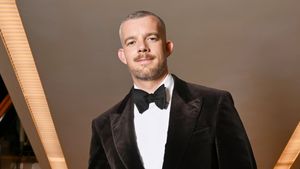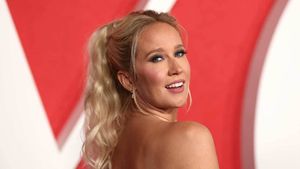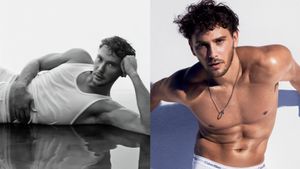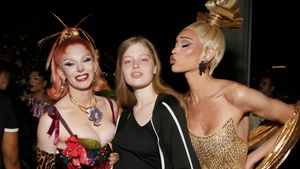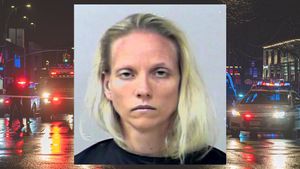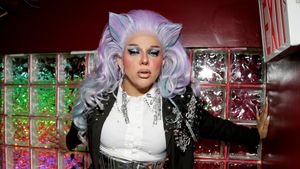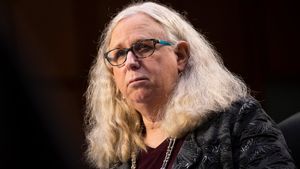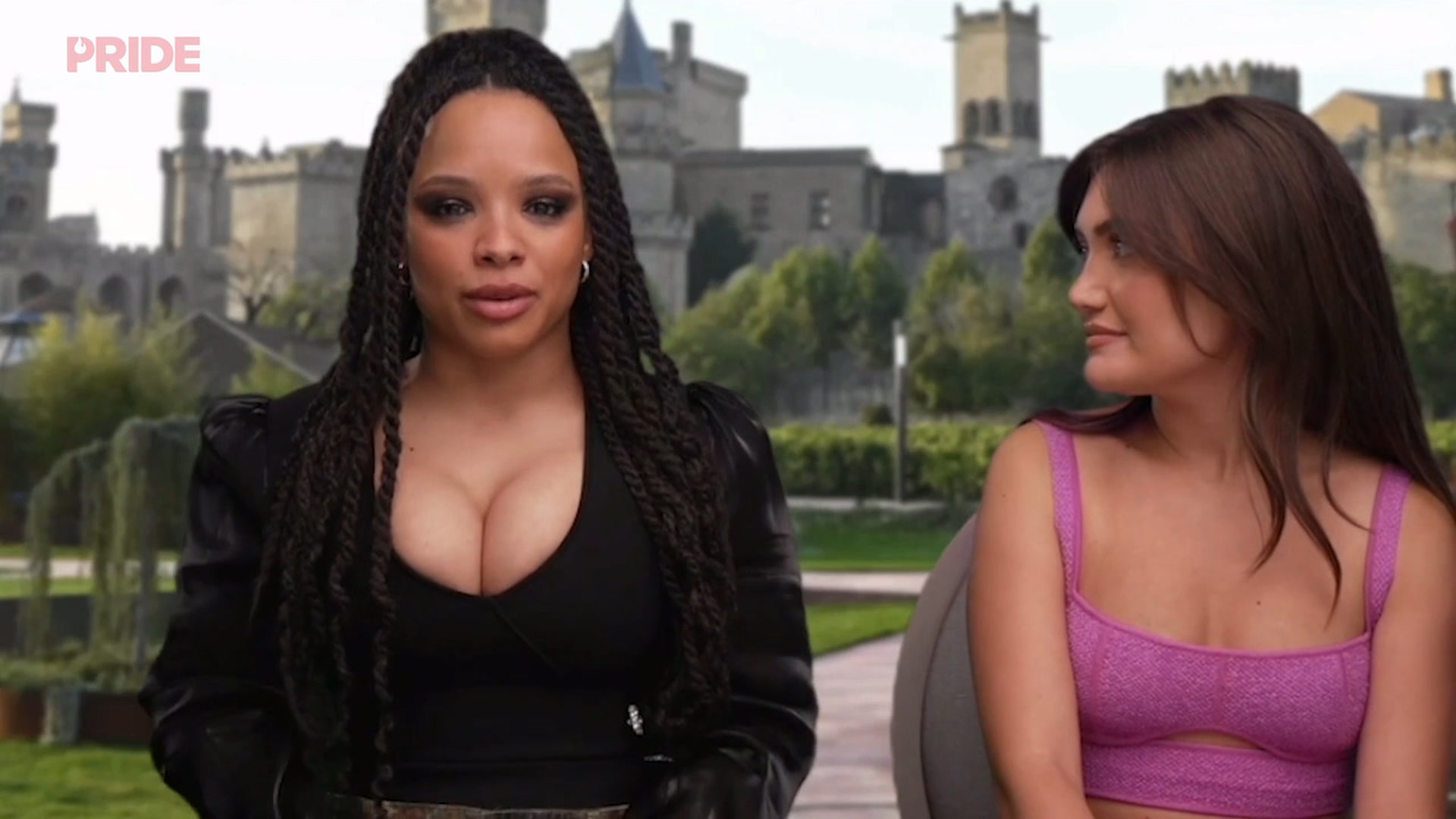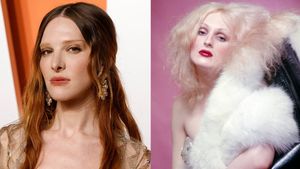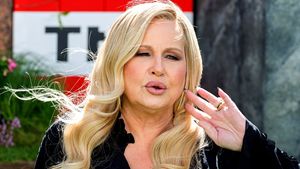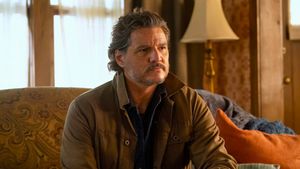It’s the beginning of the spooky season, which means there’s no better time to sink your teeth into a new vampire series. Good news: Vampire Academy, with its unique world-building, exploration of love and power, and, of course, queerness, is just the show you’ve been craving.
Based on the popular young adult book series and adapted by Julie Plec (The Vampire Diaries) and Marguerite MacIntyre (The Originals, Legacies), Vampire Academy is set to introduce a world where vampire civilization is divided into the Moroi, a mortal, magical, and elite race of vampires and the Strigoi, bloodthirsty, violent, immortal vampires who hunt the former group. Standing to protect the Moroi are the Dhampir, whose ability and strength make them ideal guardians.
As I said, the world-building is complex. But not as complex as its interpersonal relationships and politics — but then that’s what makes it fun.

At the center of it all is Lissa Dragomir (Daniela Nieves), a royal Moroi, and Rose Hathaway (Sisi Stringer), her Dhampir protector, who share a bond that’s so powerful it’s more akin to soulmates — or that’s at least how the actors describe it.
“Sisi was talking about how she saw that Rose and Lissa were a platonic thing. But it was like, no, I’m in love with you, just platonically,” Nieves tells PRIDE. “But it’s just such a deep connection and such an unconditional love. [It’s like] when you look at someone and you’re just like, I would literally die for you. I just think it’s so beautiful to have two women and their friendship be the center.”
So often, particularly in young adult fiction, relationships between women are fraught for the sake of tension. But Vampire Academy celebrates that connection. “It’s really beautiful to see female friendship represented in such a true way,” Stringer says. “I definitely feel this way about lots of my girlfriends. And it’s really important. It’s the family that you choose. So it’s crucial to your development and well-being, and sometimes I think that more of the men in my life could benefit from a friendship like that.”
“I think one of the most interesting things about Lissa and Rose’s relationship is that, in spite of the class system that exists because they come from two very different classes, they’ve built this bridge so that it doesn’t matter that they’re so different and they come from different backgrounds,” Stringer reflects. “It’s beautiful to watch these two young women defy the oppressive system.”
While their connection is arguably the strongest in the series, that doesn’t mean there isn’t plenty of opportunity for romance — and, of course, love triangles. But unlike in your typical love triangle, the aspect of self-sacrifice that is intrinsic to the Dhampir society adds a wrinkle to the dynamic.

“I think it’s a perfect example of ‘it was all about the love interest,’ as opposed to the competition between the [other two]. It’s quite beautiful really, and unfolds in different ways,” Kieron Moore, who plays Dimitri Belikov, one of the two love interests pursuing Rose, tells PRIDE. “A story happens to them, which I think is something that hopefully people will enjoy and will be torn for who they favor in the triangle.”
Cameron Monaghan, who plays Mason Ashford, the third leg of the triangle, agrees. “Yeah, it was fascinating, because it’s not a classic love triangle where it’s like, ‘I despise you.’ We both had a very mutual respect for one another, our characters,” Monaghan explains to PRIDE. “That led to a very interesting, complex triangle because I don’t think Mason was rooting against [Dimitri] and I don’t think Dimitri was rooting against Mason.”
If this all feels terribly heteronormative, don’t worry, because queerness is also a part of this vampire world, thanks to Plec who saw adding it to the book’s preexisting world as a priority. “If you go back and look at the book series, there’s not a lot of overt queer representation,” Plec admits to PRIDE. “So one of the first things we said to each other when we pulled the writer’s room together, is ‘OK, well, we’ve got to be really committed to that. In this day and age, that is something that needs to be represented in the best of the best possible ways on screen all the time.”
“[We] had a really wonderful time writing those relationships, writing those characters and casting those characters,” Plec reveals. “And it added to the richness of the ensemble show that is very much about class in general and elitism and prejudice and all those things. So it let us shine a very happy light on that community.”
Plec was a long-time fan of the book series, stretching back before she brought The Vampire Diaries to the small screen. She always kept the dream of creating a Vampire Academy show alive, however. “Over the years, I kept thinking how can I find my way back to this without really cannibalizing the genre that I’ve already worked in so many layers in,” Plec says. “So I went back and I reread the books and realized there’s so much here that is so different than any of the stories I told in Vampire Diaries.”
“I started reading it thinking this was Bridgertonwith vampires, but by the end of our experience adapting it, it’s The Hunger Games,” Plec explains. “It is really, truly a powerful story about trying to target a society that is imposing all kinds of rules on people based on who they are. And the kind of spark of revolution...that ignites these two young women into realizing ‘Wait a second, maybe we haven’t been asking the right questions about the way that we’re supposed to be living our lives.’”
It’s this undercurrent of social justice that appealed to J. August Richards, who plays Victor Dashkov, a royal Moroi who bucked tradition by falling in love and marrying his nonroyal husband Robert. “Victor is so passionate about equality. [Our characters] live in this underground vampire society that’s very steeped in hierarchy and class distinction,” Richards explains.

It’s a passion that both he and Plec share with the character, and one that made Richards excited to take it on. “Three months before getting this role, I met Julie Plec, our executive producer, for the first time through an organization called Inspire Justice. We did this talk about equality and representation in the [entertainment] industry and how passionate we both are about that,” he recalls. “Three months later, I’m reading for a show of hers to play this character whose sole agenda in the show is to bring equality to this society. That is who I am as a human being. So it just reflected so deeply and I just connected so much with this character.”
Victor is also the adopted father of the Karp sisters, Sonya and Mia. Sonya is a character with a painful backstory that showcases the series’ ability to speak to queerness on a more metaphorical level. Unable to select a type of magic to specialize in, she was punished brutally and became an outcast. It’s a clear allegory for the cruelty and lingering trauma of conversion therapy. “When we were playing those scenes and talking about them, that’s exactly what I used as a metaphor for myself to think about what had been done to my daughter and to be angry about that. And to have intense feelings about that,” Richards says. “The vampire genre, along with a lot of fantasy and sci-fi, is actually dealing with very pressing issues of the day, although they get to be explored on a larger scale in an epic way. And that’s what I love about our show.”
But it’s not all heartache and suffering on Vampire Academy; if anything, at its core it’s a series about the incredible power of empathy. “The show is very much about that,” Richards agrees. “It’s also about the power of friendship, and how these two women are able to connect in ways that kind of go beyond class and beyond even the physics of this world. [It’s also about] the closeness of women, so that’s one of the other themes I think is very pressing about the show.”
And without question, powerful women are the heart of the show, some of them as heroines and others with more ambiguous motivations. That group contains Victor’s other adopted daughter, Mia, who, without spoiling too much, is sure to soon become a queer fave thanks to both her unbridled ambition and a brewing, forbidden romance.
Vampire Academy offers plenty to chew on with politics, romance, supernatural drama, and a dash of camp.
Vampire Academy premieres today on Peacock. Watch the trailer below.
RELATED | Olivia Rodrigo Returns To HSMTMTS Just In Time For the Finale




























































